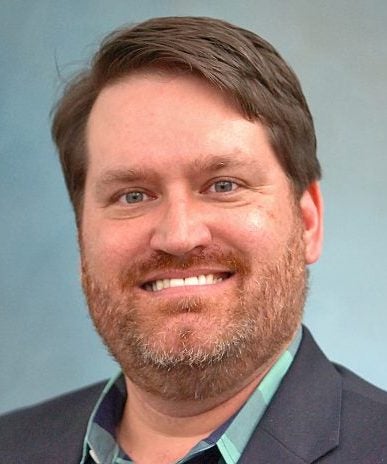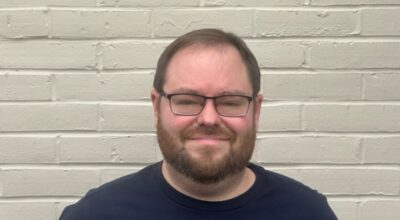Caldwell: ‘Shared aspirations’ can bring us together
Published 9:55 am Monday, October 28, 2019

- Mike Caldwell
Perhaps as much as any one person on this planet, Rich Harwood understands the word “community” in all its facets.
The internationally-acclaimed speaker and author has, after all, built a career on this word and has helped heal some of the most unimaginable wounds a community can face in places like Newtown, Connecticut.
As founder of The Harwood Institute for Public Innovation, he was in Winchester this week for the continuation of a multi-year project to change the narrative of the city and the county; but his words ring true for what is needed in every community across the country.
The organization should not be a stranger to anyone calling Clark County home since it has worked for more than three years to provide a road map for change.
The Harwood Institute, according to its mission statement, “equips people, organizations, communities and networks with the tools to bridge divides, build capacity, and tackle shared challenges. By Turning Outward, we enable communities to become a collective force for change. The Harwood practice of Turning Outward has spread to all 50 U.S. states and is being used in 40 countries. Rich has helped solve some of the most challenging problems in the hardest-pressed communities in America.”
This may sound like hyperbole, but the results are hard to dispute, with success stories aplenty.
Harwood’s approach is built on a three-tiered concept: civic faith, turning outward and how change happens.
He has spent more than three decades developing the idea of civic faith as “a philosophy that holds that placing people, community and shared responsibility at the center of our shared lives will create a more hopeful society.”
Turning outward requires a shift in thinking. “Too many leaders and organizations are turned inward, focused — often unintentionally — on themselves and their organizations at the expense of their communities.”
Harwood also believe that how change happens is equally important.
“Over the past 30 years, we’ve learned that how we work together is as important as what we do. Embracing the latest fad, simply spending huge sums of money, or taking one-size fits-all approaches will not help society create the change people seek or re-invigorate civic faith.”
His recent visit was about assessing progress of the grassroots work being done in Winchester but also sharing his principles that can make a difference elsewhere.
“We live, as you know, in divided times. We are polarized as a people. We are at each other’s throats all too often. Too many of us are hunkered down and have retreated from one another and have turned our backs on one another and are pointing fingers at one another. And it seems to me that we have a choice: Will we accept what’s happening in our country — or not?” he said. “And I’m here to say tonight, as clearly and as forcefully as I possibly can, we do not need to accept what’s happening in our country today. That we can do better, that we can be better, that we have an opportunity to bring out the best in ourselves, the best of ourselves, which is doing.
“… To take on what I believe is the greatest challenge in America today, and there are lots of issues that I’m going to talk about that are important, but I believe the greatest issue this country faces is whether or not we will believe in ourselves and one another; that we can come together and get things done.”
Harwood went on to explain that we have to move past the differences and the divides.
“When I came to Winchester and Clark County, what I heard was people saying we just focus on our problems. We focus on those things that haven’t been solved. And then we create these grand plans to solve them; and nothing happens,” he said. “And you and I both know that when we focus just on our problems, people want to know why those problems haven’t been solved and they then want to know who is responsible for solving them and then want to know who the heck to blame because they aren’t solved. That just takes us down the toxic road of discourse that we have been stuck on in this country and this community for too long. …
“So here is an alternative … and that is we need to make a commitment, a common shared commitment in this room, that we’re going to focus on what matters to people and we’re going to do it by focusing on their shared aspiration. Because here’s the thing. When people start to focus on their shared aspirations, they begin to realize that while we may have differences, while our skin color may be different, while our heritage and history may be different, while our economic status may be different, while where we live may be different, that there is still stuff that brings us together that we hold in common that can overcome what divides us. And that, when we focus on what we share in common, we can actually get to work on that, as opposed to waiting to agree on everything.
“When we focus on our shared aspirations we begin to recognize that no one leader — sorry leaders — no one organization, no one foundation, no one church, no one anything can do this work here on Earth by themselves. We need one another. That we need a community as a common enterprise. That we can’t go it alone on our own to achieve our shared aspirations.”
Rich Harwood has seen first-hand how communities only move forward by doing it for themselves, how they rebuild from within rather than waiting for the government or someone else to come save the day.
Those are lessons from which every community in Kentucky — and America — can learn.
Michael Caldwell is publisher of The Winchester Sun and Winchester Living magazine. He can be reached at (859) 759-0095 or by email at mike.caldwell@winchestersun.com.





